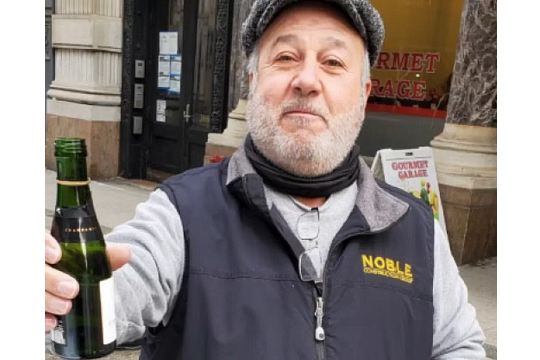
Their names could have been ripped from the kind of Hollywood mafia script that once dominated US cinema.
But when an indictment dropped on Wednesday, Joseph “Joe Brooklyn” Lanni, Angelo “Fifi” Gradilone, and Francesco “Uncle Ciccio” Vicar were instead the faces of the justice department’s latest attack on the notorious Gambino crime family in New York.
Charging documents filed by prosecutors used wiretaps, secret recordings and surveillance footage to lay out evidence against the men, accusing them of conspiracy to use violence and extortion to commit fraud and retaliate against witnesses.
However, as the initial excitement waned, experts observed that the latest round-up – which snared 16 alleged mafia members – was unlikely to have a major effect on criminal operations.
Instead, the real twist revealed by the documents was the ongoing and close relationship between the New York based mafia, and its progenitor in Sicily – where six of the suspects were detained.
Italian officials said the arrests demonstrated “the solidity of the existing relationship” between American and Sicilian gangsters.
Among those arrested were a father in Palermo and his New Jersey-based son.
Two of those arrested in the US were described as American-based members of the Sicilian Mafia, while at least one of the men arrested in Italy is believed to spend time in the US.
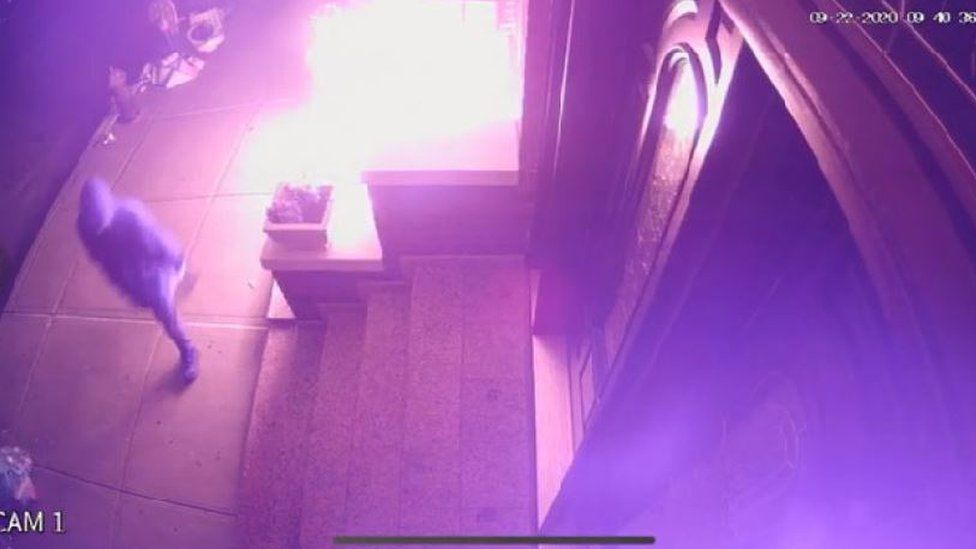
Similar raids in 2019 and 2020 also targeted people who led a “dual life” between the US and Italy, said criminology professor Anna Sergi, who has written several books about modern organised crime.
She told the BBC that the Italian gangsters consider New York to be a “gym” where their members go to be toughened up.
The usefulness of the recruits though, appears to vary.
In one intercepted discussion, US-based Sicilian Francesco “Uncle Ciccio” Vicari vented his frustrations about his American companions to Francesco Rappa back in Sicily.
“I’m 60 years old. I told them, and now they want me to do deliveries?” he said, complaining that he was not being given more important jobs.
Mr Rappa then contacted his son, Vito, and urged him to intervene, Professor Sergi said, adding that the elder Rappa is very well known to authorities in both the US and Italy and was once arrested in the 1970s for heroin trafficking. His influence – and “charisma” – are strong enough in both the US and Italy that he is able to facilitate debt collection through extortion and ensure that his friends are being treated well, she told BBC News.
Despite the varying quality of their Italian recruits, American crime families have continued to rely on a stream of such soldiers, as prosecutors have convinced scores of their own members to “rat” or inform on their families in exchange for reduced or more lenient prison sentences over the decades.
The trend has seen crime bosses appreciate the input of Italians, who are seen as being more loyal to a code of silence known as Omerta, experts told the BBC.
Among the Five Families that have run New York’s Italian-American Mafia since 1931, the Gambino and Genovese groups have had the most success recruiting in Italy over the past 15 years, Professor Sergi observed.
The Gambinos – who were the primary targets of this week’s arrests – are particularly close with the powerful Calabrian group, the ‘Ndrangheta.
“The connection is strong because neither side is strong,” says Professor Sergi.
“The Sicilian side is under siege since the 1990’s and uses New York as a ‘gym’ to grow new guys,” she said. For the New York families – beset by “recruitment” issues – the men are welcome additions.
In such a climate, some observers questioned whether the latest arrests would be seen as a serious blow to the mafia.
But long-time New York mob lawyer Murray Richman told the BBC that the US indictment doesn’t seem particularly serious – or “heavy” – compared to other notable prosecutions.
Previous indictments against the Gambino family included murder, narcotics distribution and loan sharking charges, significantly more serious than those facing Wednesday’s arrests.
“How is it different from any other mafia indictment you’ve ever seen? All you have to do is change the names,” Mr Richman said.
The indictments also outline an obsession with respect among some mafia members.
In one particularly violent episode from September, alleged Staten Island Gambino captain Joseph “Joe Brooklyn” Lanni and Vincent “Vinny Slick” Minsquero took revenge on a restaurant owner who had asked them to leave after they got into a heated argument with another patron.
Mr Lanni allegedly threatened to burn down Roxy’s Bar and Grille, with the owner inside, after boasting of his connections with the Gambino family.
He was seen on security camera footage 18 minutes later at a nearby petrol station filling a red gas container before Mr Minsquero yanked it away from him.
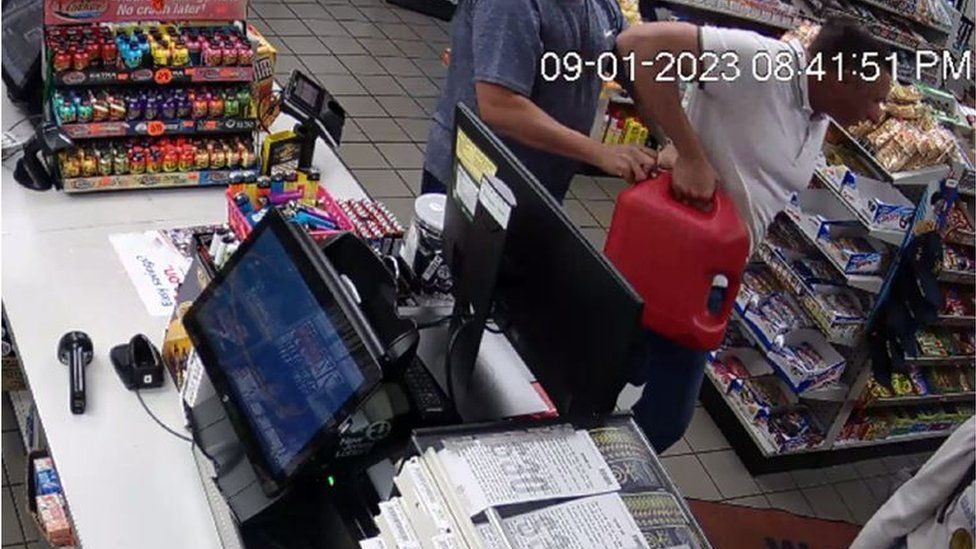
That night Mr Lanni called the restaurant 39 times, once reaching the owner while he was with a police officer whose body-worn camera recorded the encounter. The owner and the his wife were violently assaulted at knifepoint later that night.
Many of the alleged crimes targeted demolition companies and the carting industry – also known as waste management or rubbish collection.
Some plots intended to embezzle funds and defraud unions and employee benefit plans, officials say.
The Italian documents include extensive transcripts of phone calls and text messages between the accused in which they discuss developments in the US.
In one exchange, the men discussed the murder of Gambino family boss Francesco “Franky Boy” Cali, who was gunned down outside his New York home in 2019.
The killing was the highest-profile New York mafia murder in decades and fuelled false speculation of an assassination by a rival family.
Giovan Battista Badalamenti called Cali’s death a blow to all in his network, saying “his death cut off all our legs”, according to the Italian indictment.
A lawyer for Cali’s killer later argued that his client was driven by QAnon conspiracy beliefs. The gunman, a young man who lived with his parents in Staten Island, was found unfit to stand trial due to mental health issues.
When Mr Badalamenti observed that only a madman would have killed Cali, due to his position as boss of the Gambinos, Mr Francesco responded: “And thank god”.
Italian prosecutors said the response was “a clear reference to the fact that a bloody mafia war would have certainly erupted had the killer been from another mafia clan”.
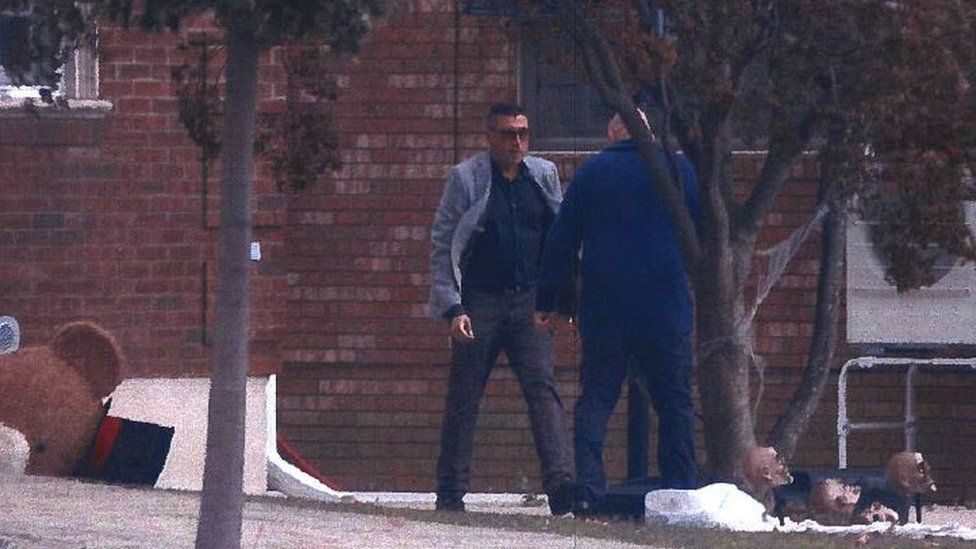
While the arrests may not cause serious challenges to the mafia, the indictments do indicate that FBI attention has again returned to organised crime, says former US Justice Department prosecutor Joseph Moreno.
In the wake of the 9/11 attacks, FBI resources lurched towards counter terrorism. In 2016, Selwyn Raab, author of the book Five Families, told Rolling Stone magazine that some FBI organised crime task forces dropped from about 400 agents to 20 or 30.
But during the Obama administration, the FBI began to combine national security and organised crime operations in an attempt to combat what it calls “transnational organized crime”.
“The idea is that when organised crime groups reach a certain degree of sophistication they can pose not just the threat of street crimes but instead a danger on a national level,” Mr Moreno said.
Italian organised crime families may not be as powerful as they once were, he added, but other organised crime groups, from Russia and East Asia, have stepped in to fill the vacuum.
“No single arrest or prosecution is likely to take down an entire mafia family, but no doubt decades of investigations have eroded their power and influence in major cities such as New York and Chicago,” he told the BBC.
All 10 US defendants have pleaded not guilty, indicating that they will fight the charges. But some may turn on their allies.
“In my experience, one in every three persons is an informant,” observed Mr Richman, who has represented several Genovese and Lucchese crime family mobsters in New York.
Professor Sergi agreed that the charges are unlikely to have a major immediate impact.
“The short term is not that important, what’s important is the comeback,” she said, predicting that there will be an increase in illicit trips in both directions in the near future.
Overall, “the connections that emerge from both sides of the Atlantic show a very well-oiled network of men that appear to be out of the old movies”.
Source: bbc.co.uk




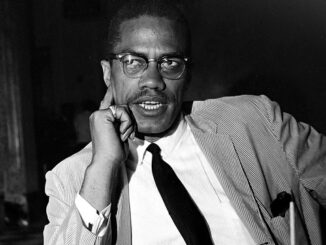

Be the first to comment